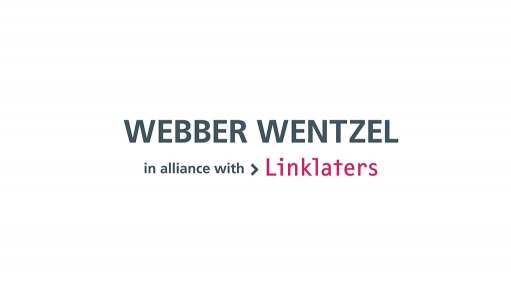
Second phase of amendments to the B-BBEE Codes of Good Practice effective from 1 May 2015
It was a busy week for the Department of Trade and Industry (DTI) last week. Hot on the heels of the notice published on 5 May, which included the non-recognition of broad-based ownership schemes and employee share schemes for black ownership (click here for our earlier alert), and the subsequent reversal of such non-recognition three days later (click here for our follow-up alert), the Minister of Trade and Industry published two further notices in the Government Gazette on 6 May 2015.
The first notice (Notice 407 of 2015) introduces numerous changes to the Broad-Based Black Economic Empowerment (B-BBEE) Codes of Good Practice which took effect on 1 May 2015 (Amended Codes). One questionable aspect of these recent amendments is that they were not previously published for public comment as required in section 9(5)(b) of the Broad-Based Black Economic Empowerment Act 53 of 2003. These amendments can be summarised as follows:
- The definition of an "Empowering Supplier" has been amended to include a fifth element that the service industry can comply with. To qualify as an Empowering Supplier, amongst other things, an entity must comply with three out of the five elements (previously four elements) listed in the definition. The new element requires the service industry to pay at least 85% of its labour costs to South African employees.
- An Exempted Micro Enterprise (EME) (entities with a turnover of under R10 million), which is automatically BEE compliant at a Level 4, does not need to obtain a BEE verification certificate and could prove its BEE compliance by way of a sworn affidavit. The amendment now also provides for this to be evidenced by presenting a certificate issued by the Companies and Intellectual Property Commission.
- A clarification has also been issued that an entity's BEE verification certificate must not reflect the BEE level based on its score if it is subject to being discounted due to non-compliance with the priority elements. Where this is the case, the BEE certificate must reflect the discounted BEE level.
- The formulae for determining the demographics of employees for purposes of the Management Control Scorecard and the Skills Development Scorecard have also been amended. It is important to note that these demographic requirements do not apply to the Management Control and Skills Development elements of the Qualifying Small Enterprise Scorecard.
The second notice (Notice 408 of 2015) publishes the finalised amendments and additions to the Amended Codes. The Amended Codes are substantially similar to the draft Amended Codes published by the DTI in October 2014 for public comment, although there are some minor differences.
Key amendments in the Amended Codes are set out below.
Guidelines for Sector Codes
Amended rules will apply to the development and gazetting of Sector Codes. The Amendments also stipulate that a Sector Code cannot be subject to a transitional period and will be implemented once enacted. The concept of Sector Transformation Plans which was introduced in the October 2014 draft has been omitted from the final version.
Specialised enterprises
Specialised enterprises (being companies limited by guarantee, higher education institutions, non-profit companies, public entities and other enterprises exclusively owned by organs of State, public benefit schemes or public benefit organisations) are measured under the specialised generic scorecard (previously the "adjusted generic scorecard"). The allocation of weighting points in this scorecard has also been amended. In this regard, four B-BBEE elements (previously, six elements) will be measured, being management control, skills development, enterprise and supplier development and socio-economic development, each with its own scorecard with specific application to specialised enterprises.
Measurement of qualifying small enterprises (QSEs)
Perhaps the most controversial amendment is that QSEs (entities with a turnover between R10 million and R50 million) will no longer be measured in terms of a choice of four of the seven B-BBEE elements, but all five B-BBEE elements. The B-BBEE elements and their respective weightings under the amended QSE scorecard are:
- ownership, 25 points;
- management control, 15 points;
- skills development, 25 points;
- enterprise and supplier development, 30 points; and
- socio-economic development, 5 points.
Each element also has its own tailor-made scorecard which differs from the generic scorecards.
Sale of assets, equity instruments and other businesses
Amended rules will apply to the recognition of the sale of assets, equity instruments and other businesses for purposes of the ownership scorecard. One of the more significant amendments is the requirement that an independent expert confirms the fairness of the purchase price of the sale.
Equity equivalent investment programmes (EEIPs)
The requirements for recognition of EEIPs as a contribution towards the ownership element of B-BBEE made by multinationals are amended, which include government strategic economic development policies and programmes which may be supported through EEIPs and the qualifying beneficiaries of EEIPs. EEIPs must promote and advance enterprise and supplier development, research and development, and critical and core skills to be accorded recognition towards the ownership element. It is possible for multinationals to make partial contributions to an EEIP and they will receive pro-rata recognition of ownership points accordingly. The minimum partial contribution is 40% of the compliance target for the ownership scorecard. Rules have been drafted for the administration of EEIPs and investment periods are regulated.
One of the more significant changes to EEIPs is that previously entities that committed to an EEIP could spend the required funds on entities that were more than 50% black owned. This has now fundamentally changed in that only contributions to entities that are made to:
- EMEs that have a Level 1 BEE status (in effect 100% black owned businesses); or
- QSEs that have a Level 1 BEE status (again, effectively 100% black owned businesses),
will be recognised.
Contact: Webber Wentzel